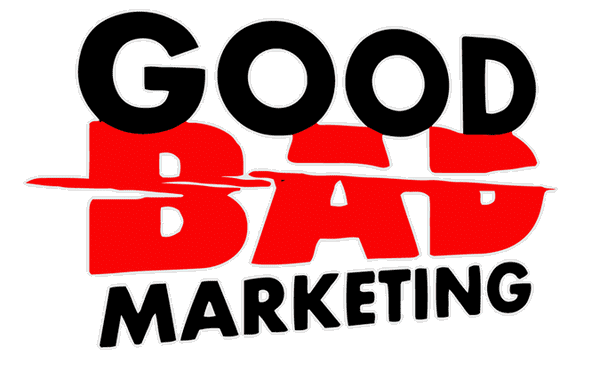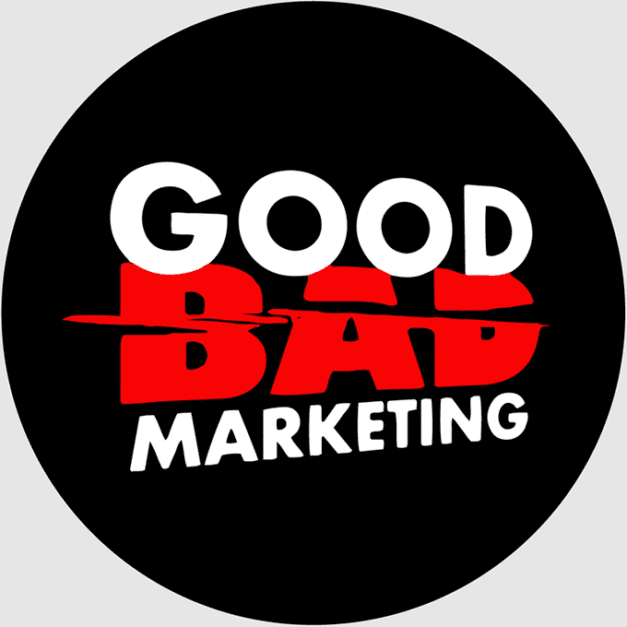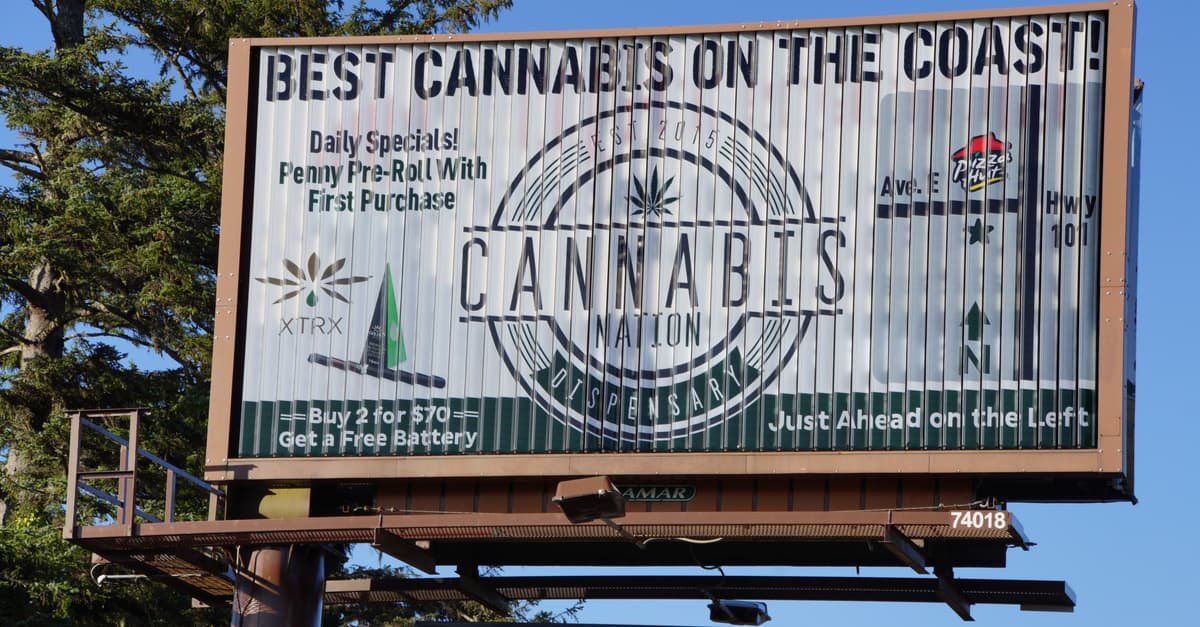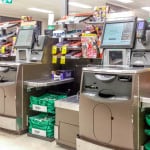The abundance of Marijuana marketing was one of the first things I noticed when I moved to Seattle back in 2017. Weed stores are all over Washington state (official government map), ranging from larger, premier upmarket establishments with sleek interiors complete with wood-paneled walls, to tiny stores on the side of the road. (Fascinatingly, you can view each store’s sales data online.)
Washington state was the second US state to legalize recreational marijuana (after Colorado) doing so back in 2012. The market has had some time to work its way into the process of starting with countless individual retailers, the buying and merging of companies, to where it is now, with a mix of independent stores and larger chains with high (no pun) marketing budgets. Other states that legalized later had a head-start on this process, with large companies from Colorado/Washington and other places simply opening stores there.
Federal restrictions ban television and radio ads, leaving billboards as a primary advertising channel. State laws restrict billboards to saying just the name, location and that buyers must be over 21. This includes weed delivery and store map services (Weedmaps’ URLs hilariously includes the planet – weedmaps.com/earth/us/wa/seattle).
One workaround has been billboards advising facts like how pot use went down among Washington state teenagers after legalization (media coverage, study). In other states Weedmaps this is part of a blatant, branded campaign to drive conversation on the topic by Weedmaps. (Their website has more #weedfacts.)

Photo: Branded Cities
Billboards remain common, and in response to the traditional advertising, Washington state is considering a ban on billboards for pot stores, although at the time of writing (Sept 2019) the legislation it is still in committee.
My expert opinion is that cannabis advertising should face identical advertising restrictions as tobacco in Australia, New Zealand and the UK. I say that, rather than just saying “tobacco”, because the US is decades behind some other countries when it comes to tobacco marketing restrictions. My local 7/11 has a sign out the front advertising that cigarettes are on special, along with the price, I see chewing tobacco advertised in print magazines, and plain packaging is years away.
—-
David Frank is a Seattle-based marketer, originally from Australia. In 2016 he did a talk for the British Science Association on the topic of how cigarette companies circumvent tobacco advertising restrictions. He did so in-character, as a tobacco executive. You can read more on his website, or watch a video of the talk.




